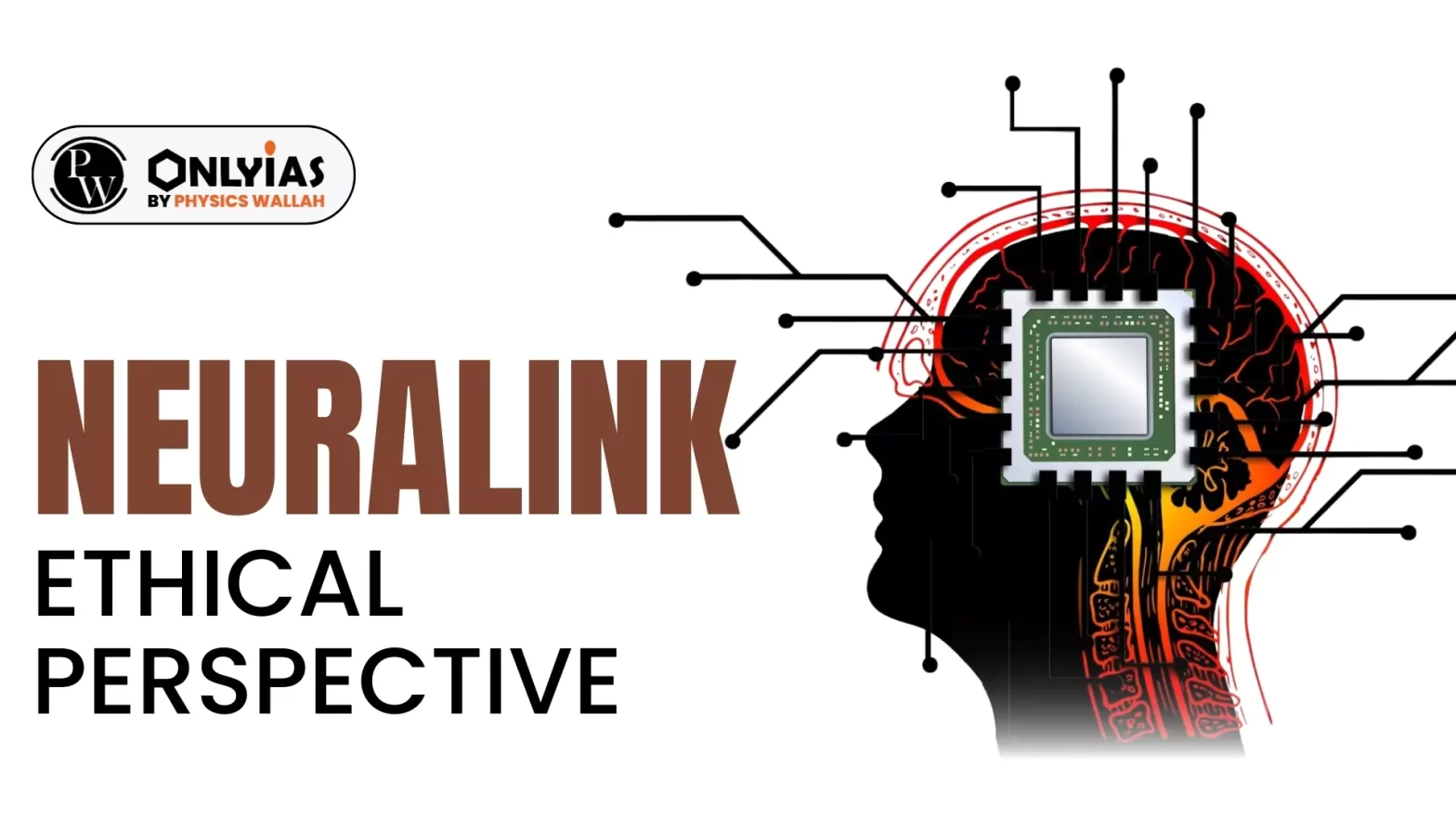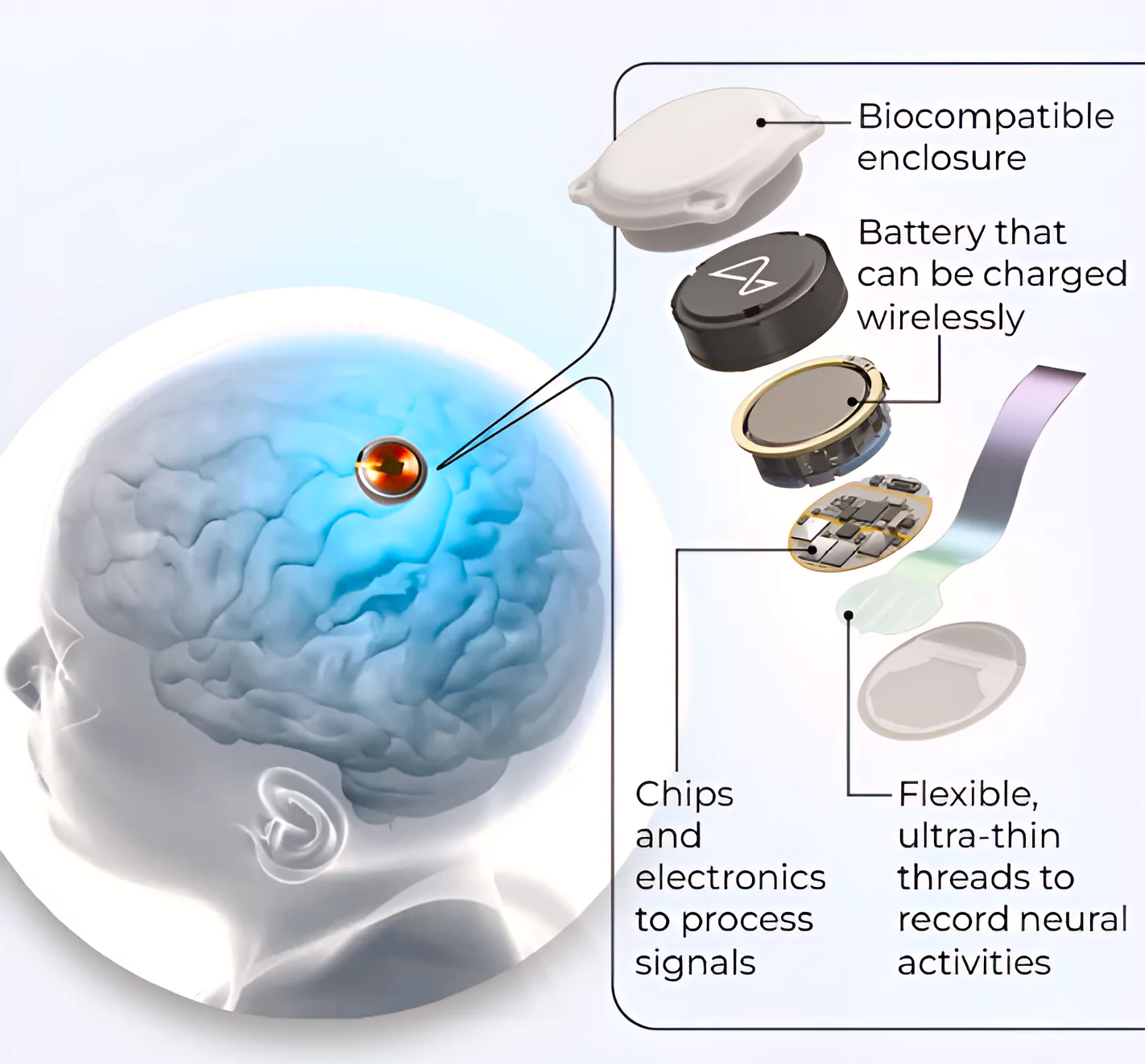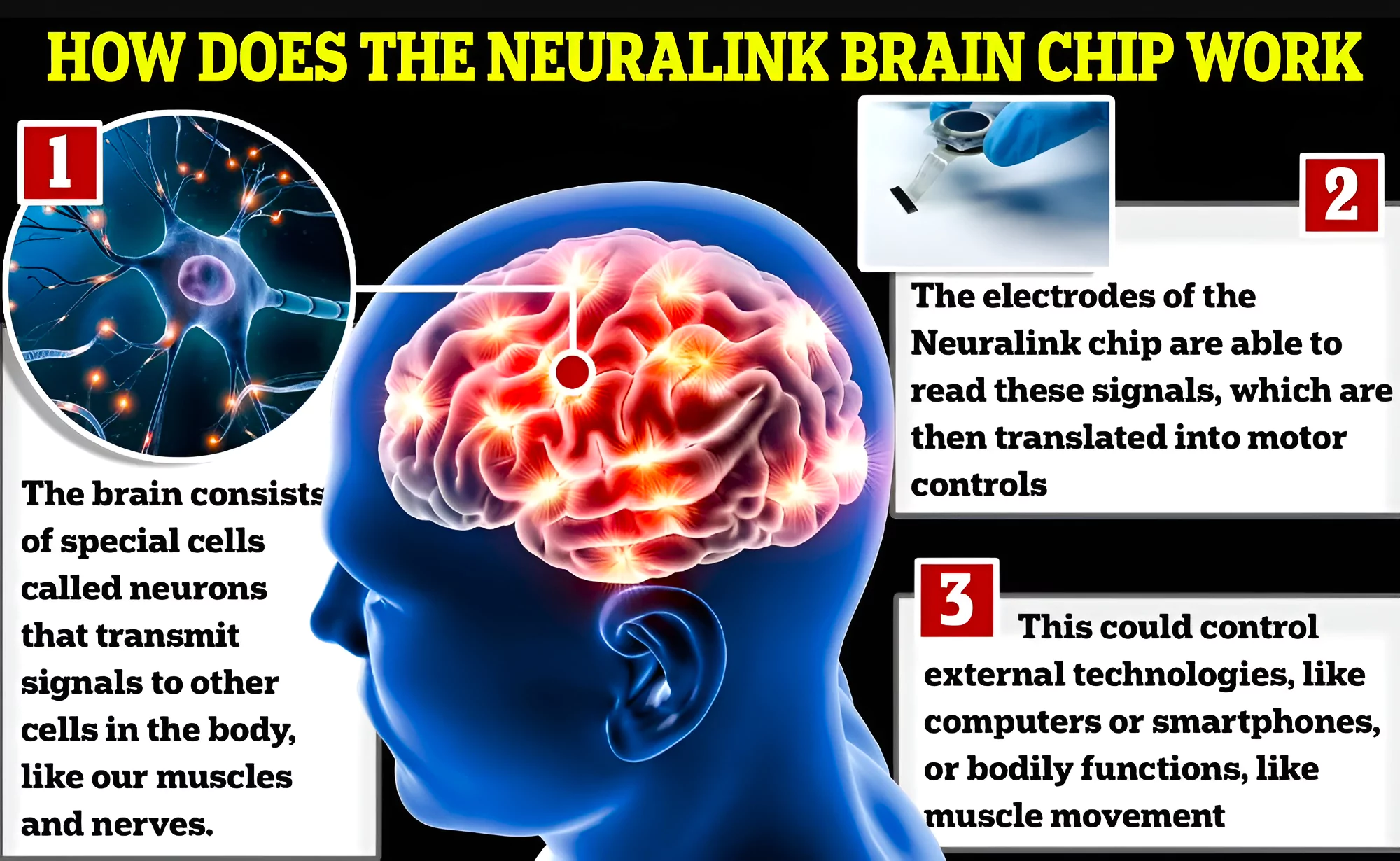![]() 8 Feb 2024
8 Feb 2024
English
हिन्दी

This article is based on the news “lon Musk’s Neuralink is a minefield of scientific and ethical concerns” which was published in the Indian Express. Neuralink has placed an experimental brain device (called Telepathy Chip) in a person in the first human test of the technology.
 Telepathy Chip: It is a surgically implantable chip that records data from individual neurons, transmitting it to a computer for task execution.
Telepathy Chip: It is a surgically implantable chip that records data from individual neurons, transmitting it to a computer for task execution.
| Must Read | |
| NCERT Notes For UPSC | UPSC Daily Current Affairs |
| UPSC Blogs | UPSC Daily Editorials |
| Daily Current Affairs Quiz | Daily Main Answer Writing |
| UPSC Mains Previous Year Papers | UPSC Test Series 2024 |
<div class="new-fform">
</div>
